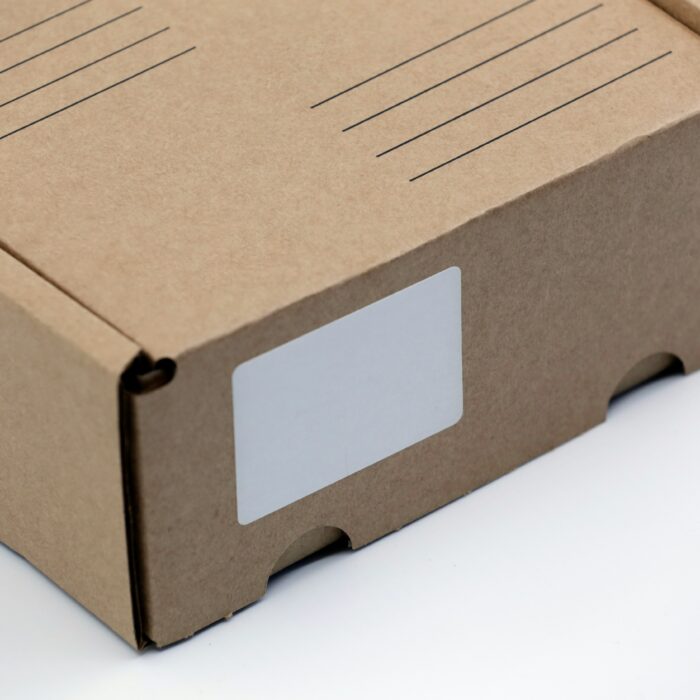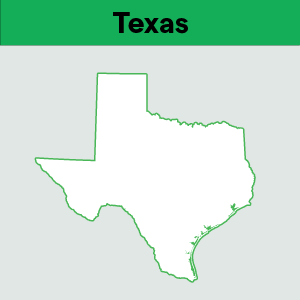Is the food I sell on my food truck taxable?
by January 11, 2025
From the Grilled Cheese Truck in L.A. to Korilla BBQ in New York to my personal favorite, the Angelfire7 BBQ truck that roams Atlanta, food trucks are here for the long haul. (Or, in many cases, the short haul around their regular route!) But if you own a food truck you may have noticed that your sales tax liability is no joke.
When you have a mobile business like a food truck that travels through different taxing districts, sales tax rates change. You may find yourself required to charge 7% to hungry customers at your lunch stop, then head over to the next town at dinner time and find that the sales tax rate has hopped to 8%.
Not to mention, every state is different when it comes to sales tax rules. Some states consider some foods taxable and others non-taxable. Or some charge a different sales tax rate for food altogether.
In this post we’ll talk about:
- Tips for charging the right amount of sales tax when you own a food truck
- How to handle sales tax and your food truck in every state
Sales tax tips for businesses on the road
While every business and state is different when it comes to sales tax, here are some general rules of thumb when you run a roaming business:
- If you’re selling to customers face to face, sales tax should be charged at the point of sale
- All but a handful of states have state AND local sales tax rates. This means that the going sales tax rate can change from location to location as you go about your day
- You can find local sales tax rates at a glance by going to TaxJar.com/sales-tax-calculator. TaxJar’s sales tax calculator gives you the general sales tax rate that is applicable in almost all cases. Be sure to consider any special tax rates (such as lower sales tax rates on certain foods) when charging your customers.
- If you, like many food truck owners, use Square to process payments, you can even add sales tax rates at your current location right from your mobile device with TaxJar’s app in the Square App Marketplace
- Many states will want you to specify every jurisdiction where you did business when filling out your sales tax returns. This is where TaxJar comes in handy. We integrate with your payment processor (Square, PayPal or others) and then show you your sales tax collected in handy, return-ready reports when it comes time to file. Schedule a demo today!)
- Food for sale to non-profits or institutions like hospitals or schools is often non-taxable. That said, this will likely be a rare occurrence for a traditional food truck and you should check with your state before making any decisions that require not charging sales tax on a sale!
- Of course, sales tax isn’t the only tax food truck owners have to worry about. Some states or local areas may impose other types of taxes on food trucks. We won’t cover those taxes in this article.
How each state handles food trucks and sales tax
Forty-six states and D.C. all have sales tax, but each state gets to govern sales tax in their own way. Because of this, the way you collect sales tax can vary from state to state.
Keep in mind that, as a general rule, most states will consider food from good trucks “prepared food to be consumed on or off the premises.” If you also happen to sell grocery items, such as bananas, you may have different sales ta rates. You can find out more about the taxability of grocery items here.
Scroll down to find out what your states says about sales tax and food trucks. In most cases, food sold by food trucks is fully taxable and you should simply charge sales tax at the location where you make the sale.
Alabama – Prepared food to be consumed on or off the premises is taxable. Grocery items are also taxable.
Arizona – Prepared food to be consumed on or off the premises is taxable. Prepared food is considered:
- hot prepared food
- hot or cold sandwiches
- food served by an attendant to be eaten at tables, chairs, benches, etc. or within parking areas for in-car consumption
- food served with trays, glasses, dishes or other tableware
- beverages sold in cups, glasses or open containers
- food sold by caterers
- food sold within the premises of theaters, exhibitions, concerts, places of amusement, and any businesses that charge for admission
Arkansas – Prepared food is taxable. Prepared food is considered:
- sold in a heated state or heated by the seller
- two or more ingredients mixed or combined by the seller for sale as a single item
- sold with an eating utensil provided by the seller, including a plate, knife, fork, spoon, glass, cup, napkin, or straw. “Plate” does not include a container or packaging used to transport the .”
California – California provides a Mobile Food Vendors Tax Guide. Here’s the gist of what is taxable according to the guide: “If you sell hot, prepared food or carbonated beverages, such as sodas, you must report tax on those sales. In addition, all food sold for consumption at tables that you provide is considered taxable. One exception to hot prepared food is the sale of hot bakery goods (donuts, muffins, etc.) which are not taxable. Sales of hot coffee and tea are also not taxable as long as they are purchased ‘to-go.’ If you sell at a place that charges admission such as swap meets, trade shows, etc., all of your sales are taxable.”
There are also some exceptions, like this: “Sales of cold food products generally are not taxable. Cold food products include cold sandwiches, milkshakes, smoothies, ice cream, and cold salads, among others. Keep track of your sales of cold food items. The 80/80 rule applies when 80% of your sales are food and 80% of the food you sell is taxable. If this rule applies to you and you do not separately track sales of cold food products sold for take-out, 100% of your sales are taxable.”
California also recently released a special notice regarding helping mobile food vendors charge the correct local tax.
Colorado – Food furnished by restaurants or other eating establishments is fully taxable
Connecticut – Food in Connecticut is taxable when it meets this criteria: “ products that are furnished, prepared, or served in such a form and in such portions that they are ready for immediate consumption, and includes products that are sold on a ‘take out’ or ‘to go’ basis and that are actually packaged or wrapped.”
Florida – While a lot of food isn’t taxable in Florida, food sold by food trucks is. Here’s what Florida has to say about taxable food:
- food products generally served, prepared, or sold in or by restaurants, lunch counters, cafeterias, caterers, hotels, taverns, or other like places of business
- food products when sold by such establishments that also maintain a separate department that includes groceries;
- when tax is due on the purchase of, or the cost of furnishing, food products consumed in places where an admission is charged for entrance;
- when sales tax is to be collected on food products separately itemized and priced from the admission charge to a patron;
- sales of meal tickets or coupon books and coupons or discounts for food products
Except, in January 2017, Florida made two exceptions:
- Library concession services are tax exempt
- Pre-assembled meals that are part of a weekly meal plan are tax exempt
These are very narrow exemptions, so or the most part prepared food sold in Florida is still taxable.
Georgia – Prepared foods are taxable in Georgia, though there are some exemptions for food in a school setting.
Hawaii – Sales of food are generally subject to Hawaii sales tax
Idaho – Sales of food are generally subject to Idaho sales tax
Illinois – Illinois has a “high rate” and a “low rate” when it comes to sales tax on food. In almost all cases, foods sold by food trucks will automatically qualify for the “high rate” (i.e. the standard sales tax rate at that location) because it is considered “food for immediate consumption.” If you think you may qualify for the low rate, check out the Illinois Department of Revenue’s regulations on Food, Soft Drinks and Candy.
Indiana – Food for immediate consumption is taxable. Here’s what Indiana has to say about what constitutes “food for immediate consumption”:
Sales of taxable prepared food include the following:
- food sold by a retail merchant who ordinarily bags, wraps, or packages the for immediate consumption on or near the retailers’ premises, including sold on a take-out or to-go basis
- food which is cooked to the order of the purchaser
- food which is cooked and maintained at or near the cooking temperature prior to sale
- prepared food which is sold by the piece rather than by weight or for immediate consumption.
Iowa – Prepared food is taxable in Iowa. “Prepared “ is defined as any of the following:
- sold in a heated state or heated by the seller, including sold by a caterer
- two or more ingredients mixed or combined by the seller for sale as a single item
- sold with eating utensils provided by the seller, including plates, knives, forks, spoons, glasses, cups, napkins, or straws. A plate does not include a container or packaging used to transport .
Kansas – “Meals or drinks furnished by any restaurant, drinking establishment, or other place that regularly sells meals or drinks to the public are subject to sales tax.”
Kentucky – “Generally, meals served on or off the premises of a retailer do not constitute nontaxable sales of food items. Thus, furnished, prepared, or served for consumption at counters or in cafes, restaurants, or and the like are is taxable. Similarly, sold by retailers who ordinarily sell for consumption on or near the premises of the retailer are taxable, even though the products may be sold for ‘take out’ or ‘to go’ and may be bagged, wrapped, or packaged and taken from the premises of the retailer.”
Louisiana – “Food sold by eating establishment is subject to sales tax.”
Maine – Prepared foods are taxable in Maine. In June 2017, Maine created a sales tax exemption for sales of prepared food by a civic, religious or fraternal organization, including an auxiliary of such an organization, at a public or member-only event. This exemption does not apply if alcohol is served at the event or if the event goes on for more than one day.
Maryland – Food for immediate consumption is taxable.
Massachusetts – Food for immediate consumption, which includes food sold by a restaurant even if “to go,” is taxable
Michigan – Food for immediate consumption is taxable. Michigan defines this as:
- food sold in a heated state or that is heated by the seller
- two or more food ingredients mixed or combined by the seller for sale as a single item; or
- food sold with eating utensils provided by the seller, including knives, forks, spoons, glasses, cups, napkins, straws, or plates, but not including a container or packaging used to transport the .
Minnesota – Prepared food sold by a retailer is taxable
Mississippi – All food in Mississippi is taxable with a few exceptions having to do with non-profits
Missouri – Sales tax is imposed on sales of meals and drinks by places that regularly serve them to the public
Nebraska – Retailers of prepared food must collect sales tax separate from the selling price. Some exemptions apply to non-profits and public institutions. “Prepared food” in this context is:
- food sold with eating utensils provided by the seller;
- food sold in a heated state or heated by the seller;
- two or more food ingredients mixed or combined by the seller for sale as a single item, but not including: that is only cut, repackaged, or pasteurized by the seller; sold in an unheated state by weight or volume as a single item; or eggs, fish, meat, poultry, and containing these raw animal requiring cooking by the consumer to prevent borne illness.
Nevada – Prepared food intended for immediate consumption is taxable
New Jersey – Prepared food is taxable. “Receipts from the sale of prepared in or by restaurants, taverns, or other establishments in the state, or by caterers, including in the amount of such receipts any cover, minimum, entertainment or other charge made to patrons or customers are subject to tax.”
New Mexico – Prepared food in New Mexico is subject to gross receipts tax (this is what New Mexico uses instead of sales tax)
New York – “Restaurant-type food” is taxable. This includes:
“Restaurant-type” food sold by a restaurant, tavern or similar establishment can generally be described as or drink that is sold in a form ready to be eaten. It includes the following:
- food or drink sold for on-premises consumption;
- sandwiches
- self-service salad bars
- food or drink sold in a heated state; and
- unheated food or beverages sold for off-premises consumption that are not sold in the same form, condition, quantities and packaging as they are ordinarily sold in grocery stores.
North Carolina – Prepared food is subject to sales tax
North Dakota – “Nearly all sales of prepared food or meals by hotels, restaurants, convenience stores, delicatessens, concession stands, coffee shops, other eating places, and caterers are subject to sales tax.Sales of food products prepared for immediate consumption on or near the premises of the seller are taxable even though they are sold on a“take out” or “to go” basis. ”
Ohio – Ohio’s sales tax is a bit different than other states. “Food” that is to be consumed off the premises is not taxable. For example, if you operate a restaurant where some people come inside and some drive through and you sell food at the drive-thru, it isn’t taxable. But the food the patrons inside are eating is taxable. You can determine this by asking if the patron means to eat “here” or to-go. Ohio explains this more in publication ST-2004-01.
Oklahoma – Sales of food is generally subject to sales tax in Oklahoma
Pennsylvania – Most types of “ready-to-eat” food in Pennsylvania are taxable.
- food or beverages purchased from persons engaged in the business of operating establishments from which ready-to-eat and beverages are sold, including, but not limited to, restaurants, cafes, lunch counters, private and social clubs, taverns, dining cars, hotels, night clubs, fast operations, pizzerias, fairs, carnivals, lunch carts, ice cream stands, snack bars, cafeterias, employee cafeterias, theaters, stadiums, arenas, amusement parks, carryout shops, coffee shops and other establishments whether mobile or immobile.
- For purposes of this clause, a bakery, a pastry shop, a donut shop, a delicatessen, a grocery store, a supermarket, a farmer’s market, a convenience store or a vending machine is not considered an establishment from which or beverages ready to eat are sold except for the sale of meals, sandwiches, from salad bars, hand-dipped or hand-served iced based products including ice cream and yogurt, hot soup, hot pizza and other hot items, brewed coffee and hot beverages.
Rhode Island – Sales of prepared food are subject to tax unless:
- sold by a seller whose primary NAICS classification is manufacturing in sector 311, except sub-sector 3118 (bakeries);
- sold in an unheated state by weight or volume as a single item;
- bakery items, including bread, rolls, buns, biscuits, bagels, croissants, pastries, donuts, danish, cakes, tortes, pies, tarts, muffins, bars, cookies, tortillas; and is not sold with utensils provided by the seller, including plates, knives, forks, spoons, glasses, cups, napkins, or straws
South Carolina – While some food is tax exempt in South Carolina, foods that are taxable include:
- Hot foods ready to eat
- Foods designed to be heated in the store
- Hot and cold food to be eaten at a lunch counter, in a dining area or anywhere else in the store or in a nearby area such as a mall food court or that are considered “prepared meals or food”
South Dakota – Food and food products are generally taxable
Tennessee – Prepared foods in Tennessee are taxable. Prepared foods include:
- food sold in a heated state or heated by the seller;
- two (2) or more food ingredients mixed or combined by the seller for sale as a single item; or
- food sold with eating utensils provided by the seller, including plates, knives, forks, spoons, glasses, cups, napkins, or straws. A plate does not include a container or packaging used to transport the
Texas – Prepared food and “food ready for immediate consumption” are taxable. This includes:
- products, and drinks, including meals, milk and milk products, fruit and fruit products, sandwiches, salads, processed meats and seafoods, vegetable juice, and ice cream in cones or small cups, served, prepared, or sold ready for immediate consumption in or by restaurants, lunch counters, cafeterias, vending machines, hotels, or like places of business or sold ready for immediate consumption from pushcarts, motor vehicles, or any other form of vehicle
- food sold in a heated state or heated by the seller
- food sold with eating utensils provided by the seller
- two or more food ingredients mixed or combined by the seller for sale as a single item, including items that are sold in an unheated state by weight or volume as a single item, but not including that is prepared at an off-site location, refrigerated that is typically reheated prior to eating, or that is only cut, repackaged, or pasteurized by the seller.
- Updated in June 2017: Bakery items sold by a bakery (whether or not heated up and utensils provided) and bakery items sold at a non-bakery location without plates or other eating utensils provided are both tax exempt.
Utah – Prepared foods are taxable except if sold to certain institutions like hospitals, churches or charitable institutions
Vermont – Vermont has something called the Meals & Rooms tax that applies to prepared foods. It’s 9% on sales of prepared and restaurant meals and 10% on alcoholic beverages served in restaurants. Vermont also breaks down special tax rules on chips and soft drinks here.
Virginia – Sales of prepared foods are generally taxable in Virginia
Washington – Prepared food is taxable in Washington. Fun Fact: Washington also wants us to all make sure to note that marijuana is not considered a tax exempt food.
Washington D.C. – Food or drink prepared, served or sold for immediate consumption is taxable
West Virginia – Food sold in a heated state, prepared , or sold with eating utensils provided by the seller is all taxable
Wisconsin – Prepared food is taxable in Wisconsin. Prepared food includes:
- food sold with eating utensils provided by the seller;
- food sold in a heated state or heated by the seller;
- two or more food ingredients mixed or combined by the seller for sale as a single item, but not including: that is only cut, repackaged, or pasteurized by the seller; sold in an unheated state by weight or volume as a single item; or eggs, fish, meat, poultry, and containing these raw animal requiring cooking by the consumer to prevent borne illness.
Wyoming – Food sales are generally taxable in Wyoming.
We hope this post has helped you understand the taxability of the food you sell on your food truck. As you can see, most of the time you will be charging sales tax to your customers.
Ready to automate sales tax? To learn more about TaxJar and get started, visit TaxJar.com/product.








